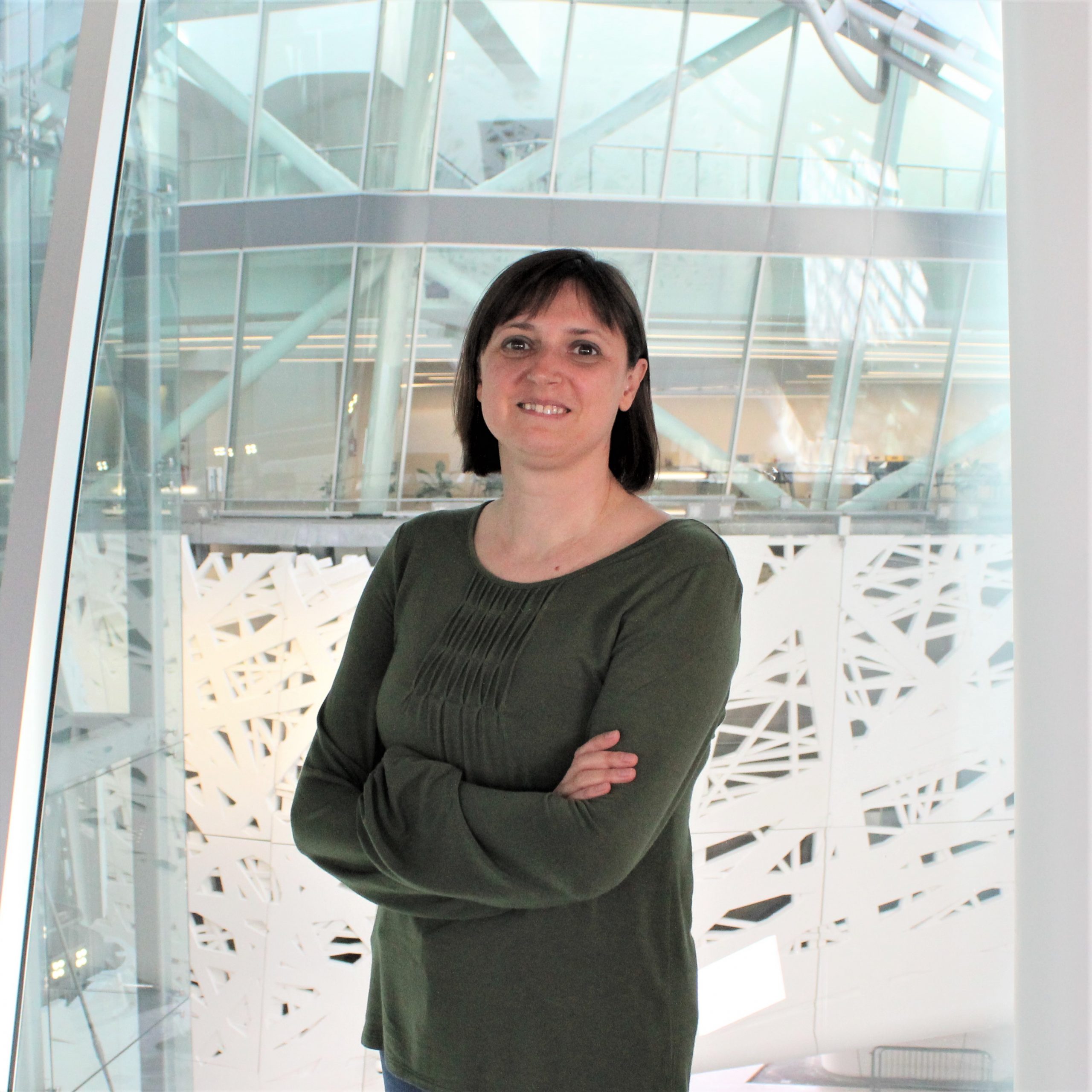
Cristina Cheroni
- Senior Manager - Cell Reference Brain Atlas Scientific Service Unit, Neurogenomics
Cristina is a computational biologist with more than 15-year experience in neurobiology; she is interested in harnessing computational techniques applied to molecular readouts to advance the knowledge of the human brain.
After a degree in Pharmaceutical Biotechnology, she obtained a PhD in Life and Biomolecular Sciences in the laboratory of Molecular Neurobiology at M. Negri Institute for Pharmacological Research, with a project focused on the molecular mechanisms of neurodegeneration in amyotrophic lateral sclerosis. She then moved to Istituto Nazionale di Genetica Molecolare, where she was involved in research programs bringing together clinical information and experimental omics data.
From 2017 to 2022 she continued her post-doctoral research as Senior Computational Biologist in prof. Testa research group, studying the molecular mechanisms at the basis of neurodevelopmental disorders related to genetic lesions or to exposure to environmental chemicals.
Since October 2022 she is the Senior Manager of the Cell Reference Brain Atlas Scientific Service Unit (CEREBRA) of HT, which focuses on single cell resolved datasets of the human brain and brain organoids.
Publication record: https://orcid.org/0000-0002-0832-2333
Publications
-
10/2022 - BioRxiv
GTF2I dosage regulates neuronal differentiation and social behavior in 7q11.23 neurodevelopmental disorders
Copy number variations at 7q11.23 cause neurodevelopmental disorders with shared and opposite manifestations. Deletion causes Williams-Beuren syndrome (WBS), while duplication causes 7q11.23 microduplication syndrome (7Dup). Converging evidence indicates GTF2I, from the 7q11.23 locus, is a key mediator of the cognitive-behavioral phenotypes associated with WBS and 7Dup. Here we integrate molecular profiling of patient-derived cortical organoids (COs) […]
-
04/2022 - BioRxiv
Benchmarking brain organoid recapitulation of fetal corticogenesis
Brain organoids are becoming increasingly relevant to dissect the molecular mechanisms underlying psychiatric and neurological conditions. The in vitro recapitulation of key features of human brain development affords the unique opportunity of investigating the developmental antecedents of neuropsychiatric conditions in the context of the actual patients’ genetic backgrounds. Specifically, multiple strategies of brain organoid (BO) differentiation have […]
-
04/2022 - Cell Reports
CHD8 haploinsufficiency links autism to transient alterations in excitatory and inhibitory trajectories
Mutations in the chromodomain helicase DNA-binding 8 (CHD8) gene are a frequent cause of autism spectrum disorder (ASD). While its phenotypic spectrum often encompasses macrocephaly, implicating cortical abnormalities, how CHD8 haploinsufficiency affects neurodevelopmental is unclear. Here, employing human cerebral organoids, we find that CHD8 haploinsufficiency disrupted neurodevelopmental trajectories with an accelerated and delayed generation of, respectively, inhibitory and excitatory neurons that yields, at days 60 […]
-
11/2019 - Stem Cell Reports
Human Cortical Organoids Expose a Differential Function of GSK3 on Cortical Neurogenesis